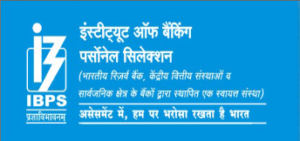Understanding the Role of a Business Analyst
How to Become a Business Analyst in India, In its core, a Business Analyst is responsible for bridging the gap between business needs and technology solutions. They collaborate with stakeholders, gather and analyze data, and provide insights to drive strategic decisions. Business analysts work across industries, assisting companies in improving processes, products, services, and software through data analysis. They collaborate with stakeholders to gather requirements, create project plans, and ensure successful project execution.
Table of Contents
Educational Requirements
To start your journey as a business analyst, you typically need a bachelor’s degree in a related field such as business administration, finance, or computer science. In specialized positions, some employers may require a master’s degree.
Developing Key Skills
Successful business analysts possess a blend of technical, analytical, and interpersonal skills. These include problem-solving, data analysis, communication, critical thinking, and attention to detail.
Gaining Relevant Experience
Entry-level business analyst roles often require some experience, which can be gained through internships, co-op programs, or entry-level positions in related fields.
Certifications That Matter
Certifications can enhance your credibility and marketability as a business analyst. Some of the most recognized certifications include Certified Business Analysis Professional (CBAP) and Certification of Competency in Business Analysis (CCBA).
Networking and Industry Involvement
Networking is crucial in the business world. Attend industry events, join professional associations, and connect with fellow analysts to expand your knowledge and opportunities.
Job Search and Application
Use online job portals, company websites, and professional networks to find business analyst positions that align with your skills and goals. For each application, make a new cover letter and resume.
Acing the Interview Process
Prepare for interviews by researching the company, practicing common interview questions, and showcasing your problem-solving abilities and communication skills.
Starting Your Career Journey
As a newly minted business analyst, be prepared to learn continuously. Adapt to your organization’s processes, build relationships with colleagues, and contribute actively to projects.
Navigating Career Growth
With experience, you can move into more specialized roles, such as data analyst, product manager, or project manager. Seek mentorship and additional training to stay ahead.
Staying Updated with Industry Trends
The field of business analysis is ever-evolving. Stay updated with industry trends, new technologies, and best practices to remain competitive.
Challenges You Might Face
Business analysts often encounter challenges such as changing project requirements, communication gaps, and managing stakeholder expectations. Developing resilience is key.
Work-Life Balance as a Business Analyst
The role of a business analyst can be demanding, but maintaining a healthy work-life balance is essential for long-term success. Manage your time effectively and prioritize self-care.
Conclusion
Becoming a business analyst in India can open doors to a dynamic and rewarding career. By following the outlined steps, continuously improving your skills, and staying adaptable, you can make a significant impact on businesses and enjoy a fulfilling professional journey.
FAQs
Q: What does a business analyst do?
A: A business analyst analyzes data, identifies trends, and provides insights to facilitate informed business decisions.
Q: What educational background is required?
A: A bachelor’s degree in fields like business administration, finance, or computer science is typically required.
Q: How can I gain relevant experience?
A: Seek internships, co-op programs, or entry-level positions in related fields.
Q: What certifications are beneficial for a business analyst?
A: Certifications like CBAP and CCBA can enhance your credibility as a business analyst.
Q: How can I navigate career growth?
A: Seek mentorship, and additional training, and consider specializing in areas like data analysis or project management.
Q: What skills are essential for a Business Analyst?
A: Key skills include critical thinking, problem-solving, data analysis, communication, attention to detail, and domain expertise.
Q: Is coding knowledge necessary for a Business Analyst role?
A: While coding skills can be advantageous, they are not always mandatory. However, learning basic coding can be beneficial, especially languages like Python or SQL.
Q: Do I need certifications to work as a business analyst?
A: Certifications like Certified Business Analysis Professional (CBAP) or Entry Certificate in Business Analysis (ECBA) can boost your credibility and enhance your skills.
Q: What tools and technologies do Business Analysts use?
A: Business Analysts often use tools like Microsoft Excel, SQL databases, data visualization platforms (Tableau, Power BI), and collaborative tools.
Q: How can I gain proficiency in data analysis?
A: You can take online courses, attend workshops, or pursue a degree in data science or analytics to improve your data analysis skills.
Q: Can I specialize in a specific industry as a Business Analyst?
A: Yes, specializing in an industry like finance, healthcare, or e-commerce can help you provide tailored insights and solutions.
Q: What steps can I take to build domain knowledge?
A: Read industry-specific publications, follow industry news, attend seminars and network with professionals in the field.
Q: How do I develop strong communication skills?
A: Practice clear and concise communication, both written and verbal. Engage in group discussions, presentations, and workshops.
Q: Are internships important for becoming a Business Analyst?
A: Yes, internships provide practical experience, exposure to real-world projects, and networking opportunities.
Q: How do I create an impressive Business Analyst resume?
A: Highlight your education, skills, certifications, internships, and any relevant projects. Tailor your resume to the specific job description.
Q: Where can I find job opportunities as a Business Analyst?
A: Explore online job portals, company websites, and professional networks (LinkedIn), and attend career fairs.
Q: What should I expect during a Business Analyst job interview?
A: Interviews may include questions about your problem-solving skills, experience, data analysis abilities, and scenario-based questions.
Q: How can I stand out in a Business Analyst interview?
A: Research the company, showcase your relevant skills, provide examples of past successes, and demonstrate your understanding of the industry.
Q: Can I transition into a Business Analyst role from a different career?
A: Yes, many skills from other roles, such as project management or data science, can be transferable to a Business Analyst position.
Q: How can I stay up-to-date with current industry trends?
A: Follow industry blogs, attend conferences, participate in webinars, and consider joining professional associations.




